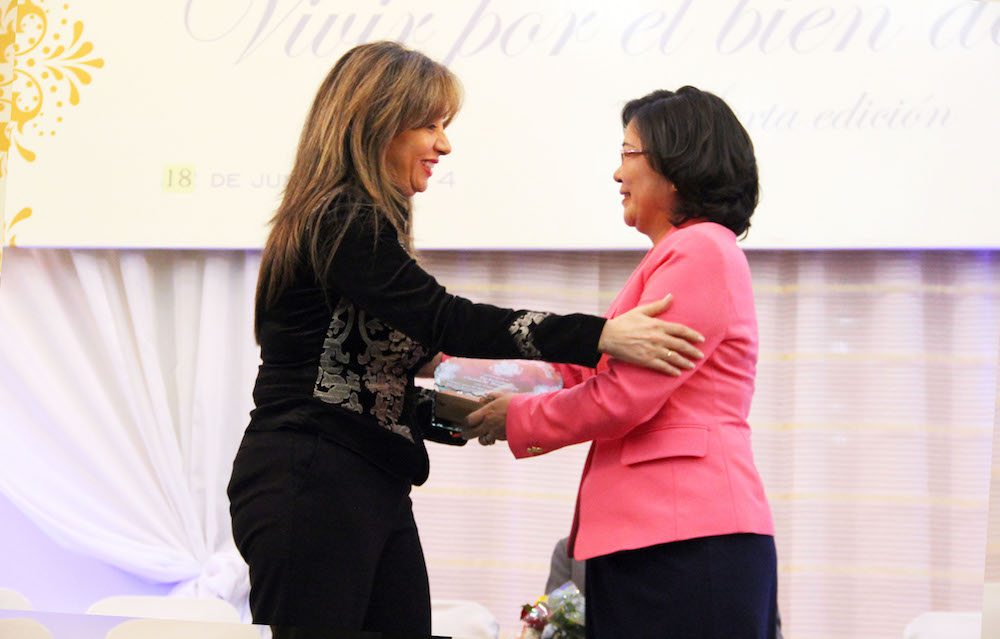“None of us chose our identity at birth, but this is our God-given destiny. Both men and women are endowed with intrinsic value by our Creator, and the qualities of each are complementary and essential. The characteristics of women provide an environment where peace can take root and grow on every level.” –Dr. Jun Sook Moon
An article by Forbes magazine, titled, “The Most Undervalued Leadership Traits Of Women,” praised some of the more underrated qualities of femininity that allow women to thrive in leadership roles both in the family and workplace. Writer Glenn Llopis acknowledged his own upbringing saying, “It is because of the women in our family that we are well-organized, full of love, spiritually aligned and well-balanced.”
Among the qualities that empower women leaders that Llopis lists are:
- People and relationship driven
- Entrepreneurial
- Servant leadership
- Emotional
- Collaborative
- Relationship Driven
Women, and especially mothers, are commonly admired for their ability to balance and make decisions in ways that consider multiple roles and relationships. With intimate knowledge of the ins and outs of each day of each person in the family, mothers often have a sense of the “bigger picture” when it comes to relationships. Moreover, mothers work to care for every member, supporting not only their physical needs, but also their emotional and spiritual growth. For a woman leader, this can translate into organizational excellence, ability to make decisions with long-terms needs in mind, multi-task and care for an expansive network of relationships.
- Entrepreneurial

Dr. Junsook moon speaks at the GPLC in Korea 2012
In the home, feminine, motherly compassion works to create a safe space for all the members of the family. This love and compassion becomes the driving motivation to solve problems, smooth over relationships and bruised knees and egos as well as to help others pursue their dreams and solve problems in a way described in the article as “entrepreneurial”. Armed with the urgency to solve pressing issues and make things better, women can be extremely resourceful, drawing on a network of relationships and connecting opportunities to get the job done.
Dr. Junsook Moon, Chairwoman of Global Peace Woman, explained one such example of this quality in a speech addressing the serious plight of North Korean children and families struggling to survive. With their children starving, women in desperate circumstances are forced to take initiative to play a broader role in their society, driving the process of unofficial markets and private economy.
- Servant Leadership
Llopis also touched on another essential aspect of women leadership: service. Women leaders tend to evaluate decisions according to what will benefit the greater whole. Such women who embody ‘servant leadership’ view the success of the team as their own success. The Paraguay chapter of Global Peace Women, the women’s division of Global Peace Foundation, annually recognizes women leaders who exemplify this attitude in the Living for the Sake of Others Award.

Women leaders receive Living for the Sake of Others Award in Paraguay
Dr. Hyun Jin Preston Moon describes the role of service in educating people of character; people who become owners of solutions rather than mere participants in the process. “Promoting a culture of service is the most practical way to substantiate the vision of ‘One Family Under God.’ When we practice a lifestyle of service, truly living for others, we exemplify the highest ideals of human character,”
- Emotional
Llopis also puts a positive spin on the “emotional” stereotype made about women. Their emotional constitution gives them a high level of empathy, enabling them to read the emotional well-being of their family or team. It also makes them passionate, driving their pursuit of excellence, giving them the courage to pursue new possibilities, and the foresight to address important issues immediately. Furthermore, women leaders are able to channel their emotions to appeal to society’s common humanity and excite change.
- Collaborative
As big believers in the power of teamwork, women leaders have been described as the ‘glue’ both in the family and workplace. Women in leadership positions tend to seek out shared purpose and connection among people, foster collaboration between peers, and take into consideration other’s perspective when confronting challenges, creating solutions and finalizing important decisions. With a “big picture” perspective of the situation, women are able to observe the intentions of others and calculate long-term consequences.
Llopis recognizes the irreplaceable part women play, noting, “Women are usually the ones to secure the foundational roots of the family and to protect family and cultural traditions from wavering. They provide the leadership within the home and in the workplace to assure that legacies remain strong by being fed with the right nutrients and ingredients.”
In building One Family under God, it becomes extremely important to recognize the unique complementary contributions that both men and women bring to the family, workplace and greater society. In honoring these differences, it becomes possible for men and women to understand their unique roles and to work together for the sake of the greater good.

